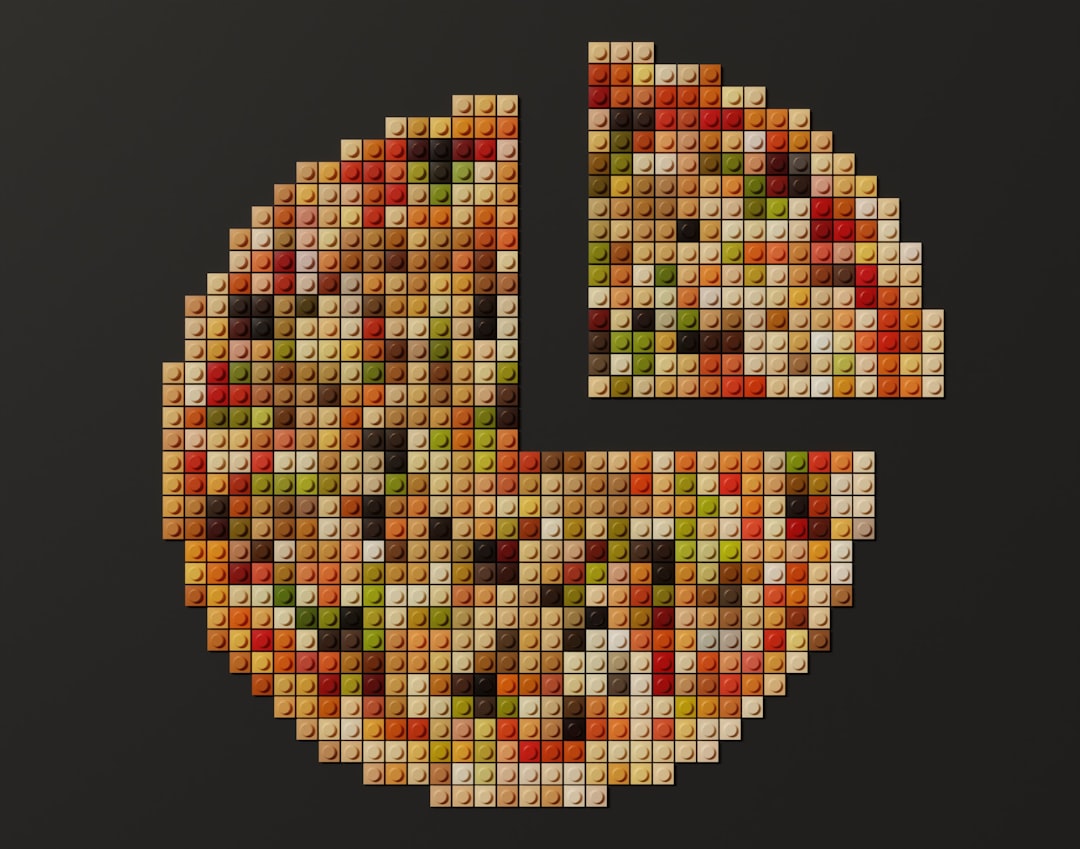In an increasingly digital world, managing our health has become more accessible than ever. Weight loss, a common health goal for many, has seen a significant transformation with the advent of mobile applications. These apps offer personalized tools, expert guidance, and community support right at your fingertips, making the journey to a healthier you more manageable and engaging.
This article will guide you through some of the most popular and effective global weight loss apps available in 2025. We’ll explore their unique features, how they empower users, and what makes them stand out in a crowded market. By the end, you’ll have a clearer understanding of which digital companion might best suit your individual weight management needs.
The Rise of Digital Health: Why Apps?
The digital health market has experienced exponential growth, with mobile health (mHealth) apps playing a pivotal role. Projections indicate the global digital health market size is expected to reach over $660 billion by 2025, driven by increasing smartphone penetration and a growing emphasis on preventive healthcare. Weight loss apps are a significant segment of this market, offering a convenient and often cost-effective alternative to traditional methods.

A user interacting with a health app, demonstrating the convenience of digital health tools.
Convenience and Accessibility
Mobile apps provide unparalleled convenience, allowing users to track progress, access resources, and receive support anytime, anywhere. This accessibility removes geographical barriers and fits seamlessly into busy lifestyles, making consistent engagement with health goals much easier. Users can log meals during lunch breaks or track workouts at the gym.
Personalized Tracking and Support
Unlike generic diet plans, apps can offer highly personalized experiences. They adapt to individual dietary preferences, activity levels, and weight loss goals. Many also provide virtual coaching, community forums, and educational content, creating a supportive ecosystem that encourages long-term adherence to healthy habits.
MyFitnessPal: The Calorie Counting King
MyFitnessPal is arguably one of the most widely recognized weight loss apps globally, primarily known for its extensive food database and robust calorie-tracking features. Launched in 2005, it has helped millions of users understand their dietary intake and make informed choices. Its strength lies in its simplicity and the sheer volume of user-contributed data.
Comprehensive Food Database
The app boasts a massive database of foods, including restaurant items, packaged goods, and homemade recipes. Users can easily log meals by searching, scanning barcodes, or creating custom entries. This detailed tracking helps users stay within their daily calorie and macronutrient targets, fostering a greater awareness of their eating habits.

Visualizing food intake and nutritional information can significantly aid in dietary management.
Community and Goal Setting
Beyond tracking, MyFitnessPal offers a vibrant community forum where users can share tips, seek motivation, and connect with others on similar journeys. The app also allows users to set personalized weight goals, track exercise, and monitor progress over time through intuitive charts and reports. This combination of tools and support makes it a powerful ally for many.
Noom: Behavioral Change at Your Fingertips
Noom distinguishes itself by focusing on the psychological aspects of weight loss, rather than just calorie restriction. It aims to help users understand the “why” behind their eating habits and build sustainable healthy behaviors. This approach has gained significant traction, appealing to those who have struggled with traditional diets.
Psychology-Based Approach
Noom’s curriculum is rooted in cognitive behavioral therapy (CBT) principles. Users engage with daily lessons that cover topics like emotional eating, hunger cues, and stress management. The goal is to foster a healthier relationship with food and develop long-term habits that support weight management and overall well-being.
Coaching and Educational Content
Each Noom user is assigned a personal coach and can join a support group, providing accountability and encouragement. The app’s extensive library of articles and quizzes reinforces the daily lessons, making learning interactive and engaging. This blend of education and personal support is a cornerstone of Noom’s success.
WW (WeightWatchers): A Proven Community Model
WW, formerly WeightWatchers, has been a leader in weight management for decades, evolving from in-person meetings to a powerful digital platform. It combines its renowned SmartPoints system with a strong emphasis on community support, making it a holistic program for sustainable weight loss.
SmartPoints System Explained
WW’s unique SmartPoints system assigns a point value to foods based on calories, saturated fat, sugar, and protein. Foods higher in protein and lower in unhealthy fats and sugars have fewer points, encouraging healthier choices. Users are given a daily SmartPoints budget, along with “ZeroPoint” foods that don’t need to be tracked, promoting flexibility and a balanced diet.
Group Support and Workshops
While digital tools are central, WW maintains its strong community aspect through virtual workshops and an active in-app social network. This peer support and expert guidance from coaches are crucial for motivation and accountability, reinforcing positive habits and providing a safe space for sharing experiences.
Lose It!: Simplicity Meets Effectiveness
Lose It! is another highly popular weight loss app that prioritizes ease of use and effective tracking. It offers a straightforward approach to calorie counting and activity logging, making it an excellent choice for those who prefer a less complex interface while still achieving significant results.
Intuitive Interface and Barcode Scanning
The app’s clean design and intuitive navigation make tracking food and exercise quick and simple. Its barcode scanner is highly efficient, allowing users to log packaged foods with minimal effort. This focus on user experience ensures that daily logging remains a consistent habit rather than a chore.
Customization and Challenges
Lose It! allows for extensive customization of goals, including macronutrient targets and specific dietary plans. Users can also participate in various challenges, either solo or with friends, adding a fun and competitive element to their weight loss journey. These features help maintain motivation and engagement over the long term.

Integrating fitness tracking with weight loss apps provides a holistic view of health progress.
Emerging Trends in Weight Loss Apps
The landscape of weight loss apps is continuously evolving, with new technologies and approaches emerging to enhance user experience and effectiveness. These trends promise even more personalized and integrated health management solutions.
AI and Personalization
Artificial intelligence (AI) is increasingly being integrated into weight loss apps to provide hyper-personalized recommendations. AI can analyze vast amounts of user data—from dietary habits and activity levels to sleep patterns and stress indicators—to offer tailored meal plans, workout routines, and behavioral nudges. This level of customization can significantly improve adherence and outcomes.
Integration with Wearables and Health Devices
Seamless integration with smartwatches, fitness trackers, smart scales, and other health devices is becoming standard. This allows apps to automatically sync data like steps, heart rate, sleep quality, and body weight, providing a comprehensive view of a user’s health without manual input. This holistic data collection enables more accurate insights and more effective guidance.
Learn more: Effectiveness of Mobile Health Apps for Weight Management: A Systematic Review and Meta-Analysis
Comparing Popular Weight Loss Apps
To help you choose the best app for your journey, here’s a quick comparison of the apps discussed:
| App Name | Primary Focus | Key Features | Best For |
|---|---|---|---|
| MyFitnessPal | Calorie & Macro Tracking | Vast food database, barcode scanner, community forums, exercise logging. | Users who want detailed food logging and nutritional insights. |
| Noom | Behavioral Change Psychology | Daily lessons, personal coaching, group support, food logging. | Individuals seeking to understand and change their eating habits. |
| WW (WeightWatchers) | Points-Based System & Community | SmartPoints system, ZeroPoint foods, virtual workshops, social network. | Those who thrive with structured plans and strong community support. |
| Lose It! | Simple Calorie Tracking | Intuitive interface, barcode scanning, custom goals, challenges. | Users who prefer a straightforward, easy-to-use tracking experience. |
Conclusion: Your Digital Partner in Health
Global weight loss apps offer diverse and powerful tools to support your health journey. Whether you prefer meticulous calorie counting, a deep dive into behavioral psychology, or the camaraderie of a supportive community, there’s an app designed to meet your needs. These digital companions empower you with knowledge, accountability, and motivation, transforming the way we approach weight management.
Remember, while apps provide invaluable support, consistency and a holistic approach to health—including balanced nutrition, regular physical activity, and adequate sleep—remain paramount. Choose an app that aligns with your lifestyle and preferences, and commit to using it regularly to maximize its benefits.
- Digital Health Market Size, Share & Trends Analysis Report (Grand View Research) – Provides insights into the growth and trends of the broader digital health industry.
- Digital Health (World Health Organization) – Offers a global perspective on digital health initiatives and their impact.
Which of these popular weight loss apps do you find most appealing, and what features do you believe are most crucial for a successful weight management journey?
